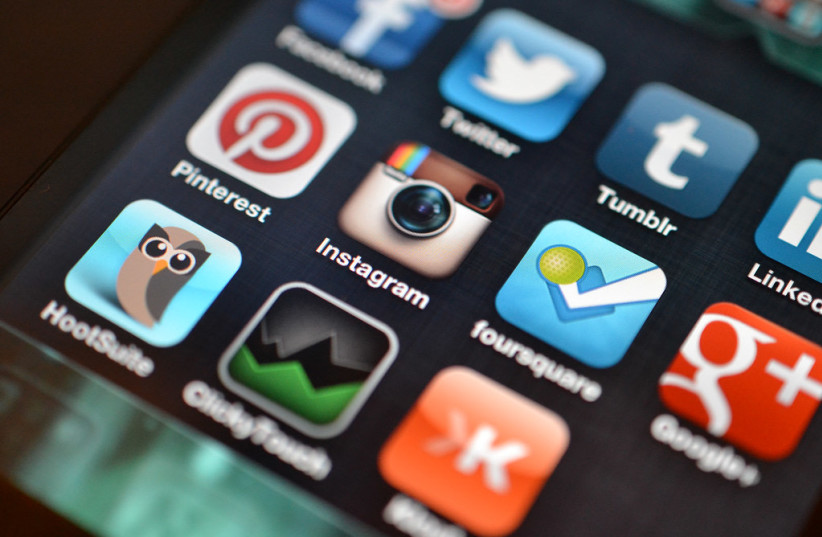The massacre on October 7 was a universal boiling point, leading to the fifth war between Israel and Hamas since Hamas took control over Gaza in 2007. In the weeks following the heinous attack, Israel has focused its resources on the IDF military operation, while the Diaspora deals with an alarming rise in antisemitism.
But another aspect of this war – the Third Front – is the virtual battle taking place on social media. Over the past couple of years, platforms such as X, and more recently, TikTok, have evolved into go-to news sources for the average American, putting journalistic credibility in peril. Recent polling shows that roughly half of the US population relies on their social media feeds for up-to-date information on current events.
Unfortunately, these feeds are notorious for hosting an abundance of misinformation and false narratives, leading to millions of individuals stuck in a state of uncertainty.
Combating misinformation on social media
X’s solution has been their community notes feature – an in-house crowdsourced fact-checking system introduced in 2022. Verified users can provide essential context underneath a particular post, substantiating it with citations, and confirming the accuracy of provided information.
However, this feature has proven to be untrustworthy: Before the war, there were around 120,000 notes written in total, but only 8.5% of them were viewed by the public, due to the harsh requisites for keeping notes visible.

The primary issue thus far has been the notes’ rating system. In order for a note to be left up, it must be voted as helpful by the consensus of viewers.
This has proven to be a difficult task, considering that the majority of posts requiring context are controversial posts, and a middle ground is not easily found. This has allowed an obscene number of unvetted posts to slip through, causing the terrible cycle of misinformation to continue.
Even X’s owner, Elon Musk, has fallen victim to misinformation during the war, reposting largely followed news accounts he incorrectly believed to be reliable sources. Both accounts were reportedly guilty of false claims this past May regarding an explosion at the Pentagon. One of the accounts happens to be not only inaccurate but virulently antisemitic as well. It posted phrases such as “the overwhelming majority of people in the media and banks are Zionists” and “go worship a Jew lil bro.”
No one is safe from the propaganda-esque cycle misleading the world’s understanding of crucial topics. While X is at least working to combat misinformation, Bytedance, the creators of TikTok, have taken no such steps to ensure unbiased reporting on the US version of their platform.
They’re doing the exact opposite of illuminating the truth. In the week of October 16-23, the number of posts bearing the hashtags #standwithPalestine and #standwithIsrael were essentially the same, at 11 million and 12m. views, respectively. However, the following week saw #standwithPalestine viewed over 285m. times, as opposed to #standwithIsrael, seen 64m. times. The dramatic shift understandably raises eyebrows, highlighting the dangers of the echo chamber that is online misinformation campaigns, and their potential for instability and drastic skewing.
Israel and the IDF have been forced to address relentless delegitimization and shameless media bias. Since the war began, the IDF has consistently shared its military operations across social media, an unprecedented step for a legitimate army.
Its continued reliance on social media serves as justification for their actions, despite the fact that this war was initiated by an opposing side of merciless barbarians.
Israel has found itself in a position of constant backlash from established media outlets and Internet keyboard warriors alike. Israel cannot simply ignore the misinformation being spread; these lies have unfortunately penetrated the walls of the US Congress and Senate, with the infamous “squad” led by Rashida Tlaib, Ilhan Omar, and Alexandra Ocasio Cortez constantly beseeching President Joe Biden to halt monetary and military support for the Jewish state, which has already received a crucial $14.5 billion in funding. Tlaib, the daughter of Palestinian immigrants, even went as far as accusing Biden of “supporting genocide” in an X post, resulting in the Michigan Congresswoman being censored by the House of Representatives.
As a society, vetting information has become a rarity, a trivial aspect to the informative content we consume. In this day and age, readers seem far more interested in “getting the tea” than discovering the truth. This dilemma has been made worse by our dwindling attention span, which has dropped significantly over the past couple of decades, around the time social media caught fire.
Now we have been introduced to short form content, revolutionized by TikTok and forever changing the world’s consumption of misinformation. TikTok’s powerful algorithm is today’s variation of Winston Churchill’s famous quote, “A lie gets halfway around the world before the truth has a chance to get its pants on.”
TikTok is infested with misguided creators posting on this subject specifically, despite many proving to be blatantly uneducated on its background, continuously besmirching Israel’s image. The Israeli-Palestinian conflict is layered with controversy and historical significance. The fact that an “influencer” can post a minute-long clip and reach exponentially more people than a well-researched article or book on the issue is the terrifying new reality we live in. Social media aren’t going anywhere, for better or for worse; and as a moral society, it is our ethical obligation to actively combat the harmful rhetoric aimed at the Jewish people and, in turn, prevent another October 7 from ever recurring. ■
The writer is currently pursuing a degree in finance at the Sy Syms School of Business in New York.
